 W
WWomen fulfilled a number of different functions during the Algerian War (1954–1962), Algeria's war for independence. The majority of Muslim women who became active participants did so on the side of the National Liberation Front (FLN). The French included some women, both Muslim and French, in their war effort, but they were not as fully integrated, nor were they charged with the same breadth of tasks as their Algerian sisters. The total number of women involved in the conflict, as determined by post-war veteran registration, is numbered at 11,000, but it is possible that this number was significantly higher due to underreporting.
 W
WWomen of Liberia Mass Action for Peace is a peace movement started in 2003 by women in Monrovia, Liberia, Africa, that worked to end the Second Liberian Civil War. Organized by Crystal Roh Gawding and social workers Leymah Gbowee and Comfort Freeman, the movement began despite Liberia having extremely limited civil rights. Thousands of Muslim and Christian women from various classes mobilized their efforts, staged silent nonviolence protests that included a sex strike and the threat of a curse.
 W
WHawa Abdi Dhiblawe was a Somali human rights activist and physician. She was the founder and chairperson of the Dr. Hawa Abdi Foundation (DHAF), a non-profit organization.
 W
WAmina was a Hausa warrior queen of the city-state Zazzau, in what is now in the north-west region of Nigeria. She ruled in the mid-sixteenth century. Her real biography has been somewhat obscured by subsequent legends and folk tales.
 W
WRawya Ateya was an Egyptian woman who became the first female parliamentarian in the Arab world in 1957.
 W
WAlice Auma was an Acholi spirit-medium who, as the head of the Holy Spirit Movement (HSM), led a millennial rebellion against the Ugandan government forces of President Yoweri Museveni from August 1986 until November 1987. The primary spirit she purportedly channelled was that of a dead army officer called "Lakwena", meaning messenger, which the Acholi believe to be a manifestation of the Christian Holy Spirit. The combined persona of Alice Auma channelling the spirit Lakwena is often referred to as "Alice Lakwena". Auma's HSM was ultimately defeated in November 1987 by Ugandan forces lead by Yoweri Museveni.
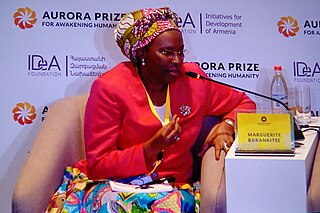 W
WMarguerite (Maggie) Barankitse is a humanitarian activist who works to improve the welfare of children and challenge ethnic discrimination in Burundi. After rescuing 25 children from a massacre, she was forced to witness the conflicts between the Hutu and Tutsi in her country in 1993. She established Maison Shalom, a shelter that provided access to healthcare, education, and culture to over 20,000 orphan children in need. Because she protested against a third term for President Nkurunziza, she lives in exile.
 W
WHalima Bashir is a Sudanese doctor and author of Tears of the Desert, a memoir about women's experiences with genocide and war in Darfur. She worked as a doctor in rural Sudan, before being abused at the hands of the National Intelligence and Security Service after reporting truthfully to United Nations officials about an attack by the Janjaweed militia on a nearby school. She has since moved to the United Kingdom, where she claimed asylum.
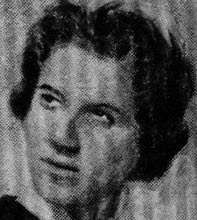 W
WHassiba Ben Bouali was a militant in the Algerian independence war (1954–62).
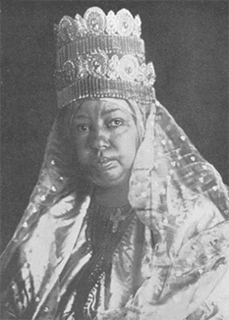 W
WTaytu Betul was the Empress of the Ethiopian Empire, ruling from 1889 to 1913. She was the third wife of Emperor Menelik II of Ethiopia and she founded Ethiopia's capital city, Addis Ababa.
 W
WDjamila Bouhired is an Algerian militant. Bouhired is a nationalist who opposed the French colonial rule of Algeria. She was raised in a middle-class family by a Tunisian mother and an Algerian father, having attended a French school in Algeria. She would go on in her youth to join the Algerian National Liberation Front (FLN) while a student activist. There she worked as a liaison officer and personal assistant of FLN commander Yacef Saadi in Algiers.
 W
WDjamila Boupacha is a former militant from the Algerian National Liberation Front. She was arrested in 1960 for attempting to bomb a cafe in Algiers. Her confession, which was obtained by means of torture and rape, and her subsequent trial affected French public opinion about the methods used by the French army in Algeria after publicity by Simone de Beauvoir and Gisèle Halimi. Boupacha was sentenced to death on June 29, 1961, but was given amnesty under the Evian Accords and later freed on 21 April 1962.
 W
WThe Mino, or Minon, which means "our mothers", or so-called Dahomey Amazons by European writers, were a Fon all-female military regiment of the Kingdom of Dahomey in the present-day Republic of Benin which lasted until 1904. They were so named by Western observers and historians due to their similarity to the mythical Amazons of ancient Anatolia and the Black Sea.
 W
WDihya or Al-Kahina, was a Berber queen and a religious and military leader who led indigenous resistance to the Muslim conquest of the Maghreb, the region then known as Numidia. She was born in the early 7th century and died around the end of the 7th century in modern-day Algeria.
 W
WZohra Drif Bitat is a retired Algerian lawyer, moudjahid, and the vice-president of the Council of the Nation, the upper house of the Algerian Parliament. Drif was born in Tissemselt, Algeria, part of the province of Tiaret, where her grandfather was an imam and her father served as a lawyer and judge in Tiaret. She is best known for her activities on behalf of the National Liberation Front (FLN) during the Algerian War of Independence.
 W
WShajar al-Durr, also Shajarat al-Durr, whose royal name was al-Malika ʿAṣmat ad-Dīn ʾUmm-Khalīl Shajar ad-Durr, was a ruler of Egypt. She was the wife of As-Salih Ayyub, the last Egyptian sultan of the Ayyubid dynasty, and later of Izz al-Din Aybak, the first sultan of the Bahri dynasty. Prior to becoming Ayyub's wife, she was a child slave and Ayyub's concubine.
 W
WLeymah Roberta Gbowee is a Liberian peace activist responsible for leading a women's nonviolent peace movement, Women of Liberia Mass Action for Peace that helped bring an end to the Second Liberian Civil War in 2003. Her efforts to end the war, along with her collaborator Ellen Johnson Sirleaf, helped usher in a period of peace and enabled a free election in 2005 that Sirleaf won. She, along with Ellen Johnson Sirleaf and Tawakkul Karman, were awarded the 2011 Nobel Peace Prize "for their non-violent struggle for the safety of women and for women's rights to full participation in peace-building work."
 W
WGudit was a queen from the Kingdom of Semien who, according to local legend, laid waste to Axum and its countryside, destroyed churches and monuments, and attempted to exterminate the members of the ruling dynasty of the Kingdom of Aksum. Her deeds are recorded in the oral tradition and mentioned incidentally in various historical accounts.
 W
WQueen Idia was the mother of Esigie, the Oba of Benin who ruled from 1504 to 1550. She played a very significant role in the rise and reign of her son, being described as a great warrior who fought relentlessly before and during her son's reign as the oba (king) of the Edo people. Queen Idia was instrumental in securing the title of oba for Esigie following the death of his father Oba Ozolua. To that end, she raised an army to fight off his brother Arhuaran, who was subsequently defeated in battle. Esigie thus became the 17th Oba of Benin.
 W
WRose Lokissim was one of the first female elite soldiers from Chad. She fought against Hissène Habré's dictatorship in the 1980s.
 W
WJosina Abiathar Muthemba Machel was a leader of FRELIMO and a significant figure in the struggle for independence in Mozambique.
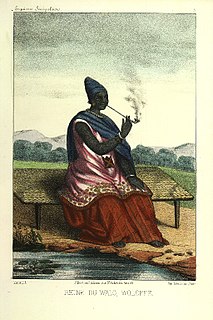 W
W W
WMuhumusa was a feared leader of the east African Nyabingi spiritual practice, which was influential in Rwanda and Uganda from 1850 to 1950. Muhumusa is said to have been a medium of the spirit of a legendary African woman, known as Nyabinghi. According to some Rwandan sources, her original name was Muserakande, and she was married to and had a son named Biregeya with Kigeri Rwabugiri, the King of Rwanda from 1867 to 1895. Following Rwabugiri's death in 1895 and the coup at Rucunshu in 1896, which was orchestrated by Rwabugiri's favourite wife, Kanjogera, to overthrow his chosen successor, Rutarindwa, and enthrone her son, Musinga, Muserakande allegedly fled north to Mpororo with her son to escape massacre. Other sources, however, claim Muhumusa was originally named Nyakayoga and had been married to Rutarindwa prior to his death.
 W
WJoice Runaida Mujuru, also known by her nom-de-guerre Teurai Ropa, is a Zimbabwean revolutionary and politician who served as Vice-President of Zimbabwe from 2004 to 2014. Previously she had served as a government minister. She also served as Vice-President of ZANU–PF. She was married to Solomon Mujuru until his death in 2011 and was long considered a potential successor to President Robert Mugabe, but in 2014 she was denounced for allegedly plotting against Mugabe. As a result of the accusations against her, Mujuru lost both her post as Vice-President and her position in the party leadership. She was expelled from the party a few months later, after which she formed the new Zimbabwe People First party.
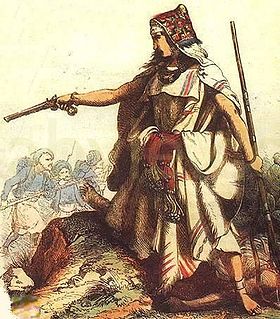 W
WLalla Fatma N'Soumer was an important figure of the Algerian resistance movement during the first years of the French colonial invasion of Algeria. She was seen as the embodiment of the struggle.
 W
WNehanda Charwe Nyakasikana also known as Mbuya Nehanda was a svikiro, or spirit medium of the Zezuru Shona people. She was a medium of Nehanda, a female Shona mhondoro.(powerful and respected ancestral spirit) As one of the spiritual leaders of the Shona, she was one of the leaders of a revolt, the Chimurenga, against the British South Africa Company's colonisation of Zimbabwe led by Cecil John Rhodes in 1889. She was a Hera of the Hwata Mufakose Dynasty. She and her ally who some historians claim was her husband, Sekuru Kaguvi were eventually captured and executed by the British. She has been commemorated by Zimbabweans through the building of statues in her name, street names, hospitals, songs, novels, and poems. The legacy of the medium continued to be linked to the theme of resistance, particularly the guerrilla war that began in 1972. Her name became of increasing importance to the nationalist movements in Zimbabwe.
 W
WNzingha Mbande (1583–1663) was Queen of the Ambundu Kingdoms of Ndongo (1624–1663) and Matamba (1631–1663), located in present-day northern Angola. Born into the ruling family of Ndongo, Nzinga received military and political training as a child, and she demonstrated an aptitude for defusing political crises as an ambassador to the Portuguese Empire. She later assumed power over the kingdoms after the death of her father and brother, who both served as kings. She ruled during a period of rapid growth in the African slave trade and encroachment of the Portuguese Empire into South West Africa, in attempts to control the slave trade. Nzinga fought for the Independence and stature of her kingdoms against the Portuguese in a reign that lasted 37 years.
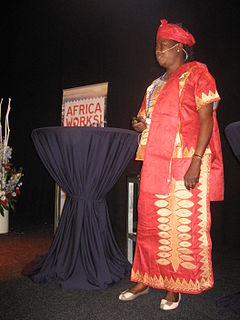 W
WBetty Achan Ogwaro is a parliamentarian in the government of Southern Sudan (GOSS).
 W
WDeolinda Rodrigues was an Angolan nationalist, militant, writer, and translator, who also taught, wrote poetry, and worked as a radio host. Born into a Methodist family, she received a scholarship to study in Brazil, from where she corresponded with Martin Luther King Jr. Fearing extradition, she continued her education in the United States before returning to Angola. Rodríguez was a member of the People's Movement for the Liberation of Angola (MPLA) and co-founded its women's wing, the Organização da Mulher de Angola. She captured, tortured, and executed by a rival nationalist group in 1967. A documentary of her life was released in 2014.
 W
WSarraounia Mangou was a chief/priestess of the animist Azna subgroup of the Hausa, who fought French colonial troops of the Voulet–Chanoine Mission at the Battle of Lougou in 1899. She is the subject of the 1986 film Sarraounia based on the novel of the same name by Nigerien writer Abdoulaye Mamani.
 W
WSeh-Dong-Hong-Beh was a leader of the Dahomey Amazons. In 1851, she led an all-female army consisting of 6,000 warriors against the Egba fortress of Abeokuta, to obtain slaves from the Egba people for the Dahomey slave trade.
 W
WEllen Johnson Sirleaf is a Liberian politician who served as the 24th President of Liberia from 2006 to 2018. Sirleaf was the first elected female head of state in Africa.
 W
WTembandumba was a ruler of the Jagas of what is now Angola.